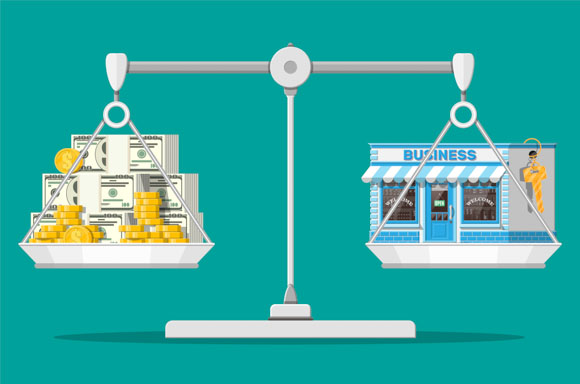Business valuations are used for many reasons. Some are fully business related, such as applying for a bank loan to expand your business, whereas others are more personal, for example, getting divorced.
Whatever the reason, it is important to have your business valued objectively. That usually means hiring a professional, preferably one with expertise in valuing businesses like yours. Owners generally don’t have the necessary objectivity to perform the valuation fairly, which can be detrimental to the result. Think about it this way: when you’re planning a home renovation, you look for the contractor with the fairest price. You don’t want to pay more than you need to, but you don’t want to use the lowest priced contractor who may be skimping on quality.

The same is true for your business: the buyer or lender wants to rely on the most accurate valuation available.
There are several ways to value a business. The most common valuation methods are the asset-based, earnings-value, and market-value approaches.
Asset-Based Approaches
- Going concern value. This is a fairly straightforward process. The business’s liabilities are subtracted from the value of its assets. The remainder is the business’s value.
- Liquidation value. This method is more subjective. Using this method, the business’s value is the net cash that would remain after all assets were sold and all liabilities paid off.
Earnings-Value Approaches
- Capitalizing past earnings. With this approach, the company’s past earnings are adjusted for unusual revenue or expenses and then are multiplied by a capitalization factor (i.e., the rate of return a reasonable purchaser can expect and the anticipated level of risk that the anticipated result will not be achieved).
- Discounted future earnings. This approach is the reverse of the capitalized past earnings approach. Rather than looking at past earnings, this approach is calculated using predicted future earnings divided by a capitalization factor.
Market-Value Approach
This approach is quite different than the others. Rather than looking at how your business has performed or is expected to perform in the future, the market value approach compares the value of your business with that of similar businesses that have recently sold.
Although these three methods are the most commonly used business valuation methods, the best option may be to use a combination of methods. Combing methods enables you to consider a number of additional factors, including the following:
- Whether the business is a disruptor (e.g., Uber or Airbnb) that can’t be valued against competitors and who’s potential is difficult to estimate
- Whether the business is a franchise that must be valued according to its contractual obligations
- Whether and how the company’s key employees should be part of the company’s value
- How the business’s organizational structure will affect the valuation
- Where the business is in its life cycle (i.e., in a growth phase, stagnant or in decline)
Whichever business valuation method you choose, and whomever you choose to perform it, the valuation is ultimately the result of a calculation. The higher the valuation, the higher the projected selling price or bank line of credit.
To help you determine the best method for your business valuation, contact us today.
We welcome the opportunity to put our small business expertise to work for you. To learn more about how our firm can help advance your success, don’t hesitate to contact Kathy Corcoran at (302) 254-8240.
©2024

